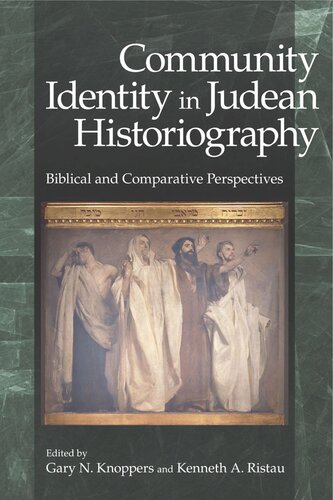

Most ebook files are in PDF format, so you can easily read them using various software such as Foxit Reader or directly on the Google Chrome browser.
Some ebook files are released by publishers in other formats such as .awz, .mobi, .epub, .fb2, etc. You may need to install specific software to read these formats on mobile/PC, such as Calibre.
Please read the tutorial at this link: https://ebookbell.com/faq
We offer FREE conversion to the popular formats you request; however, this may take some time. Therefore, right after payment, please email us, and we will try to provide the service as quickly as possible.
For some exceptional file formats or broken links (if any), please refrain from opening any disputes. Instead, email us first, and we will try to assist within a maximum of 6 hours.
EbookBell Team

4.4
92 reviewsMost of the essays in this volume stem from the special sessions of the Historiography Seminar of the Canadian Society for Biblical Studies, held in the late spring of 2007 (University of Saskatchewan). The papers in these focused sessions dealt with issues of self-identification, community identity, and ethnicity in Judahite and Yehudite historiography. The scholars present addressed a range of issues, such as the understanding, presentation, and delimitation of “Israel” in various biblical texts, the relationship of Israelites to Judahites in Judean historical writings, the definition of Israel over against other peoples, and the possible reasons why the ethnoreligious community (“Israel”) was the focus of Judahite/Yehudite historiography. Papers approached these matters from a variety of theoretical and disciplinary vantage points. For example, some pursued an inner-biblical perspective (pentateuchal sources/writings, Former Prophets, Latter Prophets, Chronicles, Ezra, Nehemiah), while others pursued a cross-cultural comparative perspective (ancient Near Eastern, ancient Greek and Hellenistic historiographies, Western and non-Western historiographic traditions). Still others attempted to relate the material remains to the question of community identity in northern Israel, monarchic Judah, and postmonarchic Yehud.